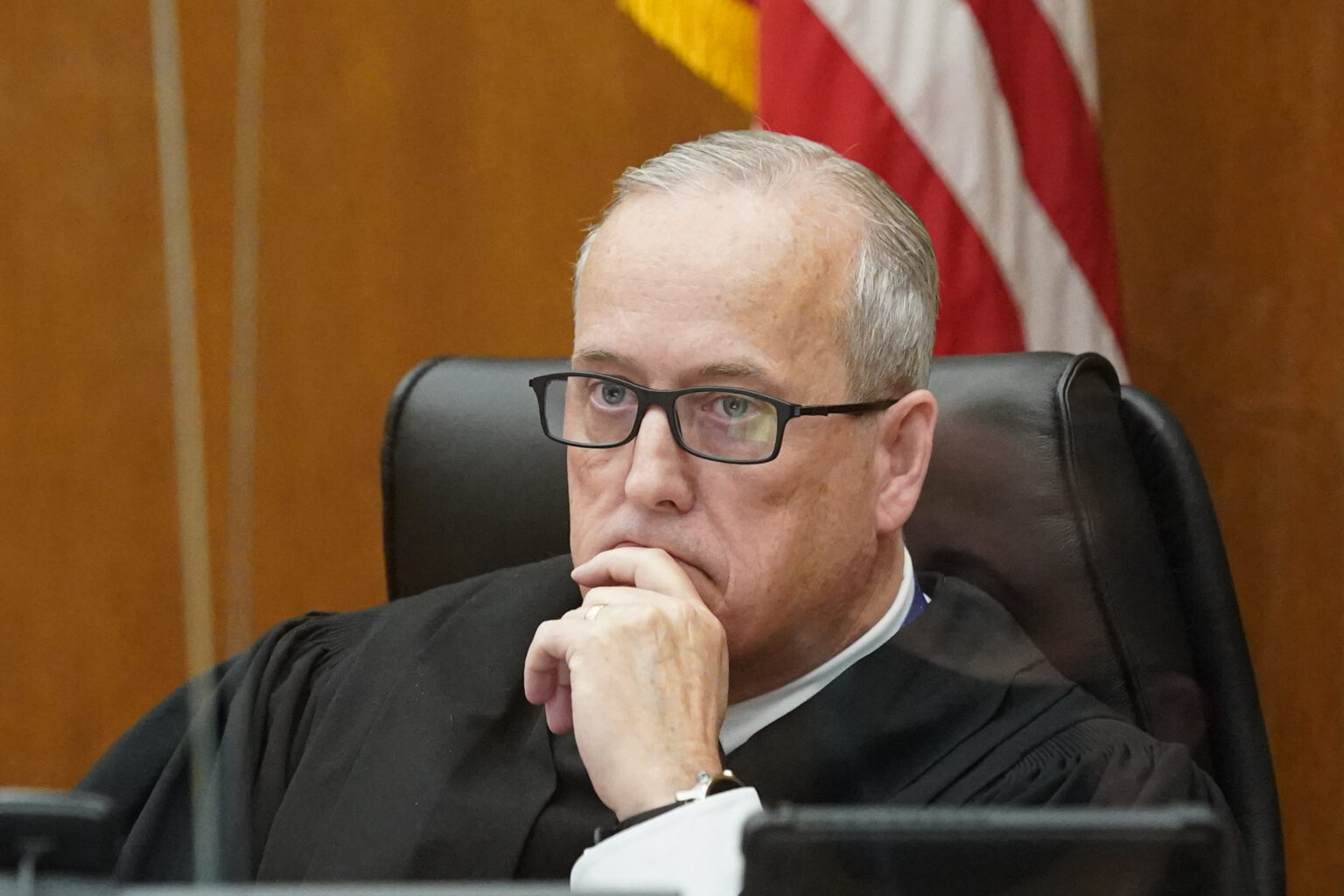The judge who oversaw the trial of Derek Chauvin has broken his silence, speaking publicly for the first time in four years.
Peter Cahill, who presided over the landmark 2021 trial, reflected on the case that captured global attention following the death of George Floyd on May 25, 2020, in Minneapolis, Minnesota. Floyd, an unarmed Black man, died after being restrained by Chauvin, who knelt on his neck and back for over nine minutes.
In a candid interview, Cahill admitted to having a pro-police bias, but emphasized that he remained committed to impartiality throughout the proceedings. “Part of my training is to check my bias,” he said. “And to be honest, I think I have a pro-police bias that I have to be careful not to act on.”
Cahill revealed he never wanted the case, saying he swore aloud when he learned it had landed on his desk. “It’s duty, honor, country when it comes right down to it,” he added.
The judge also recalled receiving a note from Lance Ito, the judge in the 1995 O.J. Simpson case. The brief message read: “Peace and wisdom.”
Cahill’s decision to allow the trial to be livestreamed stemmed from both legal and ethical considerations. Due to COVID-19 restrictions, only six people were permitted in the courtroom. Cahill said this violated the principle of a public trial, leading him to open the proceedings to the world. More than 23 million viewers watched the guilty verdict in real time.
He admitted that the trial brought significant personal strain. His phone was flooded with voicemails, and by the end of the trial, he had received enough hate mail to fill two boxes. “Most of the hate mail was, ‘You should have given him life.’ You had pastors condemning me to hell for my ‘light sentence,’” Cahill said. Others urged him to pardon Chauvin—something he had no legal authority to do.
Some messages mentioned his family, which he believed were meant to intimidate him. One letter asking for an autograph was sent directly to his home. In response, he enhanced his home security, including installing a police-monitored camera in a neighbor’s tree. Security patrols began appearing up to three times a day. Still, his family and community rallied around him, delivering care packages—including a bottle of whiskey.
Cahill recalled the moment he first saw the video of Floyd’s death and immediately knew the case would be significant. Despite his reservations, he accepted the responsibility. “I remember thinking, ‘He’s gonna get charged,’” he said.
During the trial, tensions escalated further after the police shooting of Daunte Wright. The trial also coincided with national discussions on police reform, and the Minneapolis City Council announced a $27 million settlement with Floyd’s family just as jury selection began.
Cahill criticized public officials for weighing in on the trial, including then-President Joe Biden, who expressed hope for the “right verdict.” He rejected a defense request to move the trial, stating that no part of Minnesota would be unaffected by the case.
After the verdict, he spent hours speaking with jurors, who assured him their decision was based solely on the evidence presented. He dismissed claims that protest chants were heard inside the courtroom during deliberations, noting the jury had been transported to another location to deliberate in seclusion.
Cahill acknowledged criticism that he limited information during the trial, such as Floyd’s prior criminal history. “A lot of this stuff had nothing to do with it. [Floyd’s] not on trial,” he said.
He expressed concern over what he sees as a growing distrust in the justice system. “The far right, you know, their daily bread is revisionist history. But in this instance, it’s a lack of trust in the judicial process—and that’s concerning,” Cahill said.
His only regret, he said, was initially imposing a gag order on attorneys, which he quickly reversed after realizing it was ineffective. He was particularly angered by a New York Times article suggesting a potential plea deal based on leaks from law enforcement. “That pissed me off,” he said.
Now retired, Cahill has donated his mask, robes, notes, and even hate mail from the trial to the Minnesota Historical Society. Derek Chauvin remains incarcerated at a federal prison in Texas, serving a 22½-year sentence for the murder of George Floyd and for violating his civil rights.

